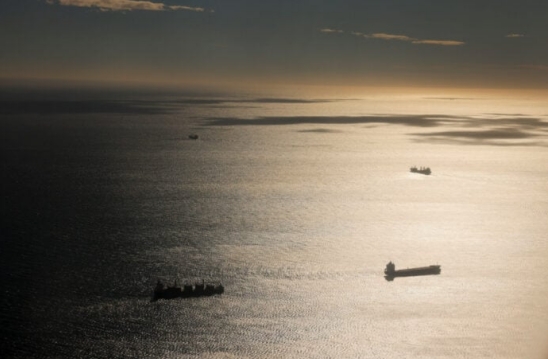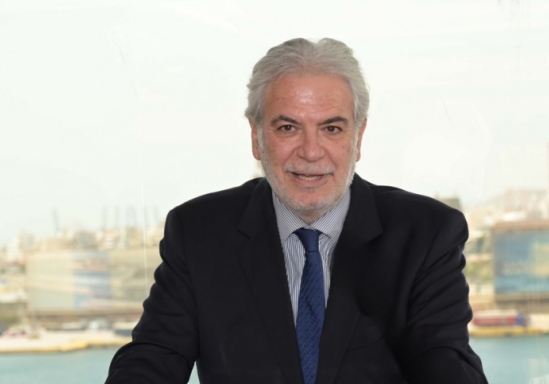"Start" for green coastal shipping at a cost of €2 billion
By Paris Tsirigotis

Modern coastal transport for the sustainable development of the islands, against the backdrop of the increased cost of the sector’s transition to a greener future, was outlined during a conference held by the Greek Shipowners Association for Passenger Ships (SEEN).
Sources in the coastal shipping market, speaking to Naftemporoki, reported that while the regulatory framework for the path towards the decarbonization of the sector is in place, it significantly raises operating costs, potentially increasing ticket prices by 8% to 10%.
According to the new EU environmental regulations, most of the coastal shipping fleet will have to be replaced or modernized, with the aim of reducing gas pollutant emissions.
The EU ETS emissions trading system is already applied to the Patras-Italy coastal shipping connections and to islands with more than 200,000 inhabitants (Crete), which determines that each coastal shipping company must purchase the stock market value of the carbon dioxide it emits for each ton of fuel it burns.
At the same time, from 01/01/2025, FuelEU Maritime is also applied, forcing coastal shipping vessels to consume low-sulfur fuels, which are more expensive than regular fuel oil.
The Ministry of Maritime Affairs has estimated that the public and private funds that will be required for the greening of the coastal shipping sector and the development of port infrastructure will reach 2 billion euros in 2027-2028.
Initiatives
A contractor has already been assigned the task of preparing the master plan for the renewal of the coastal shipping fleet, with the aim of replacing it with new, environmentally friendly ships. The project is set for completion by June 2025.
The investment plan for the renewal of the fleet will assess the financial needs of the companies, the cost-benefit analysis, and the design of the financing mechanism.
Furthermore, through the NSRF program, funding of 80 million euros has already been secured, with the potential to reach up to 360 million euros and will concern the "greening" or the construction of new ships for coastal shipping operating on barren routes.
The relevant financing program concerns only the public-private partnership (PPP) with multi-year contracts, which can reach up to 12 years.
Speaking in Parliament on the issue of the renewal of coastal shipping vessels, the Minister of Shipping Christos Stylianidis pointed out the aging fleet and the safety issues that may arise in some cases, while also referring to the deficiencies in port infrastructure.
He noted that "the country went through a decade when unfortunately no money was allocated for port infrastructure, in a difficult sea such as the Aegean."
He stressed the issue of port infrastructure, saying that another 300 million have been secured by the EU for small and effective projects that concern Greek coastal shipping, mainly in the Aegean.
Ship repair and sustainability of coastal shipping are the main priorities.

"Greek coastal shipping is called upon to respond to the challenges of the modern era and adopt new technologies and practices," Minister of Maritime Affairs and Insular Policy, Christos Stylianidis, said in a conference held by the Greek Shipowners Association for Passenger Ships (SEEN).
He also stressed the need for balanced state intervention, in order to ensure the sustainability of the sector and the provision of high-quality services to citizens.
Stylianidis presented the main directions of the ministry’s policy, which, as he stated, are based on two pillars: innovation and balanced intervention.
More specifically:
Digital upgrading and protection of passenger rights: Aiming at enhancing transparency and providing better services to passengers, the ministry promotes the digitalization of procedures and the development of electronic services.
Slot systems for the safe operation of ports: The implementation of slot systems will contribute to decongesting ports and increasing safety.
Plan for green ships on barren routes: The ministry promotes an innovative model of public-private cooperation for the renewal of the fleet on rural routes with green ships.
Master plan for the Aegean: A comprehensive plan for the evaluation of infrastructure and the development of coastal shipping in the Aegean.
Maritime cluster: The creation of a maritime cluster will contribute to strengthening the competitiveness of Greek shipping and attracting investments.
Upgrading maritime education: The ministry promotes the upgrading of maritime schools and the provision of modern educational programs.
Stylianidis pointed out that strengthening the sectors of shipbuilding and repair, with priority given to the energy upgrading of the existing fleet and the construction of new, environmentally friendly ships, is a key objective of the ministry.
At the same time, he committed to continuous efforts, through negotiations with European institutions and other partners, to ensure the improvement of the position of Greek coastal shipping and the maximization of European funding in key sectors.
(Editor: liaoyifan )


